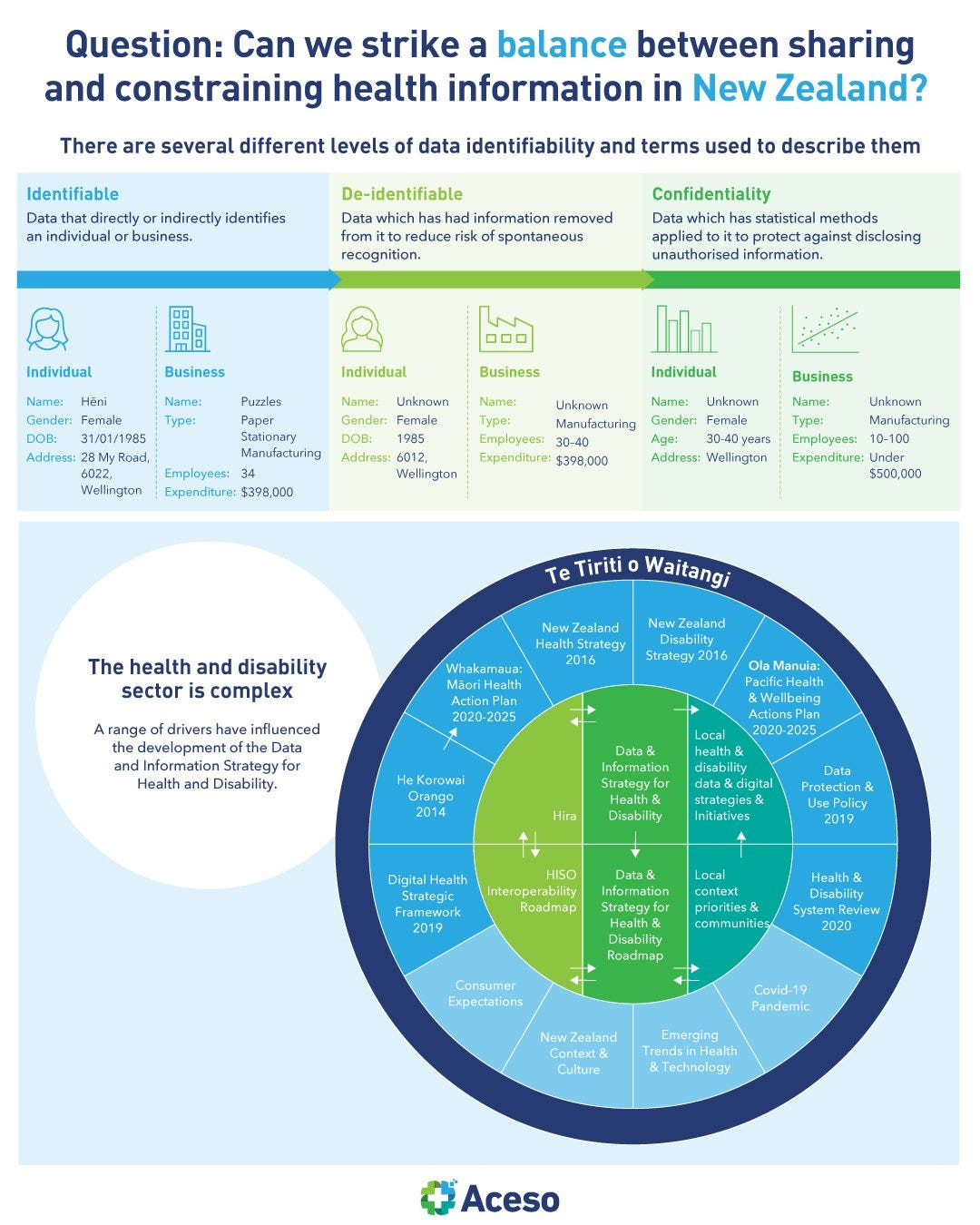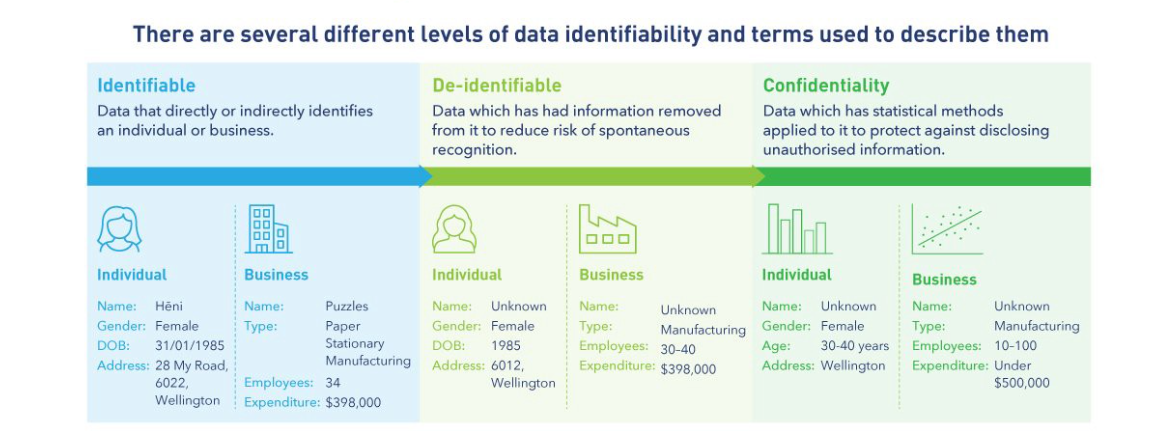Aceso Health
Accessed on July 11, 2022
Site version edited by:
Joaquim Cardoso MSc.
Health Transformation — Institute
Data Health Unit
July 11, 2022

As the digitisation of health records progresses, opportunities for health data use grow.
It is vital that New Zealanders’ preferences around the use of, and access to, their health information are prioritised to ensure that health services use the data in a patient and whānau-informed manner.
Decisions about governance and access to data for secondary purposes should be consistent with the Māori Data Sovereignty principles.
The Privacy Commissioner has said that rather than thinking in terms of ownership, it is more accurate to say that a person has rights over health information about themselves and that health organisations have obligations over the health information they hold.
There is no doubt that data is a valuable currency in this modern, digital age.
It is important to strike the right balance between access to information and constraints on information sharing.
Currently there is no ‘home’ for data over time, at either the individual or the population level.
Rhetoric of ‘ownership’ is increasingly important to debates about the ethical management of clinical data. But the precise meaning of “ownership” remains opaque.
“There is broad agreement that it is individuals who should not only control their own data but also have the right to make decisions about access to their data…”.
Currently there is no ‘home’ for data over time, at either the individual or the population level.
Rhetoric of ‘ownership’ is increasingly important to debates about the ethical management of clinical data. But the precise meaning of “ownership” remains opaque.

In parallel, there is a substantial body of literature on patients’ attitudes to data sharing, their desire for control of their health data, and their expectations of and concerns about healthcare professionals sharing data safely and appropriately.
The rights over personal data largely relate largely to issues of privacy and confidentiality.
While the patient has legitimate interests in the access to and use of clinical data, all other provider groups also sit in relationship to the data and they have legitimate interests in access to and use of it.
A narrow interpretation of ownership as private patient property obscures all these other parties’ connections to the data.
It has also been pointed out that data research primarily concerns the interests of collectives.
The focus of data research is to identify patterns and correlations across populations and groups.
We must begin talking about creating a health data resource in a much broader and more universal context, controlled by the individuals who supply the data.
All those involved in the health data cycle need to understand their rights and responsibilities and build models of trust to provide an environment that facilitates the responsible use of health data with robust identity protection, and collective and participatory ethical data sharing mechanisms.
Rather than focussing on individual experiences, this requires a society-centred design approach.
A responsible flow of data will benefit humanity through medical discovery, and potentially improve population health.
In the end, who owns the data? Perhaps, we all do.
We must begin talking about creating a health data resource in a much broader and more universal context, controlled by the individuals who supply the data.
Originally published at https://www.aceso.health on July 10, 2022.












